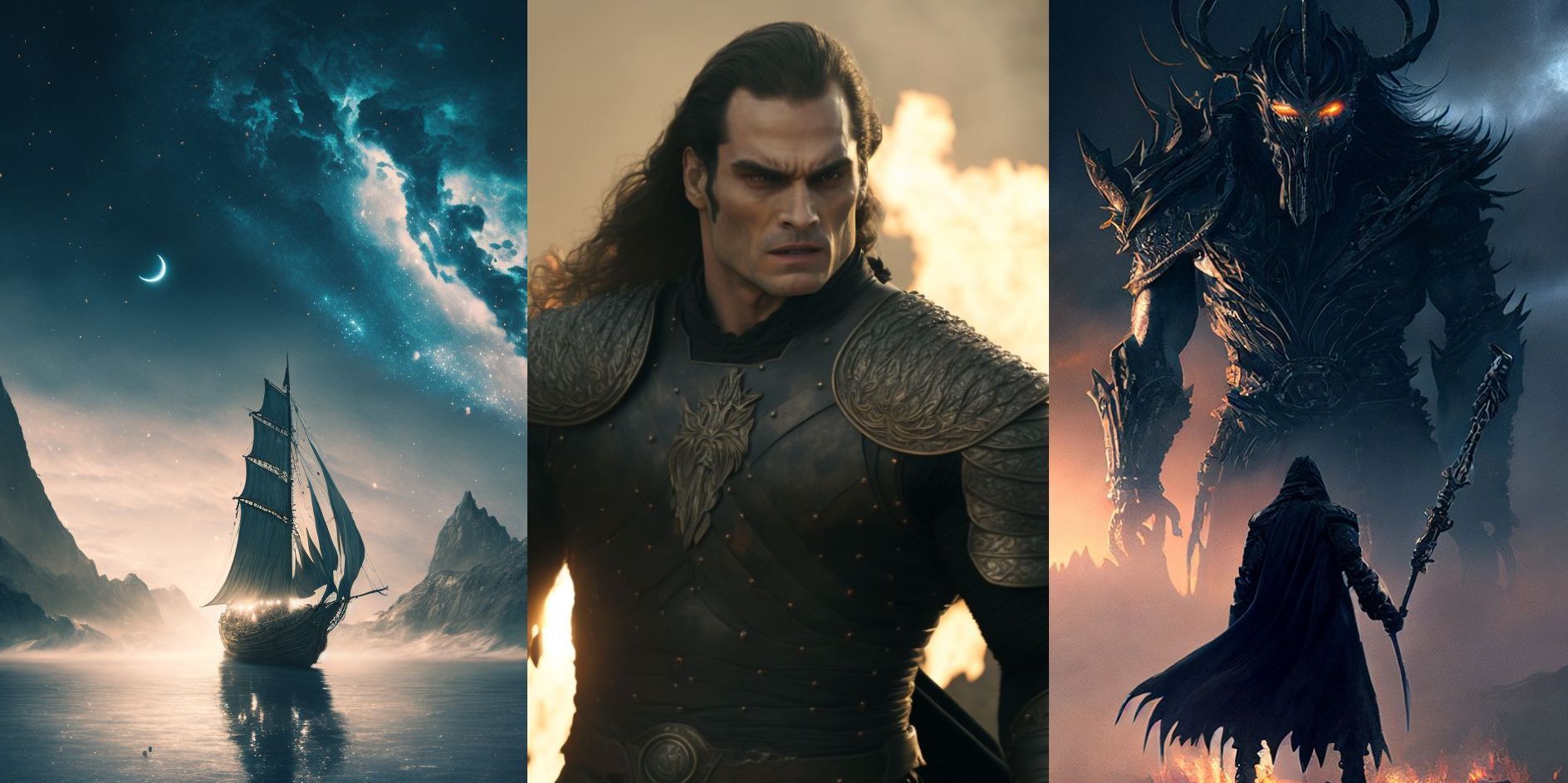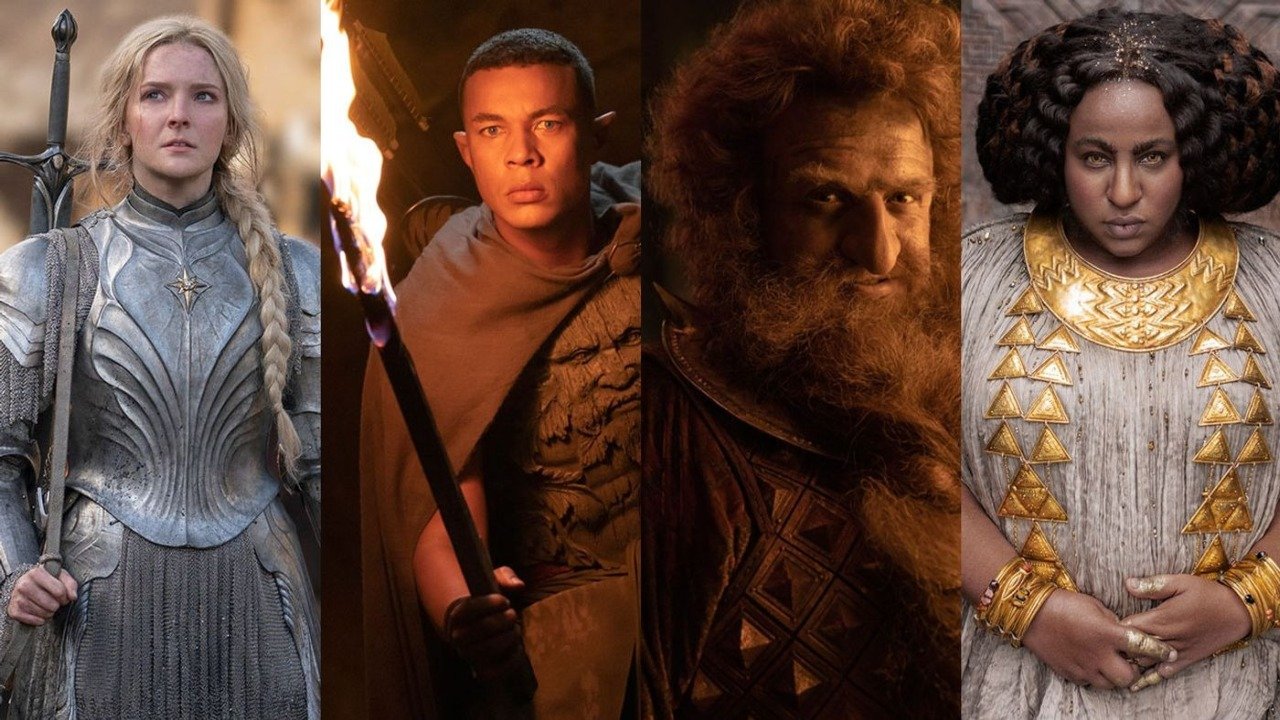⚔️ The Silmarillion (2025)

Before the age of men, before the forging of the Rings, there was only light — pure, unbroken, divine. But in every light, pride finds its reflection, and from that reflection, ruin begins to breathe.

In The Silmarillion (2025), director Alaric Stone reimagines Tolkien’s most mythic text with awe and fury, conjuring a world where creation itself trembles under the weight of its own beauty. Henry Cavill stands as Fëanor, the flame-hearted elf-lord whose genius forges the Silmarils — jewels so radiant they rival the stars — and whose vanity sets the cosmos ablaze. His eyes gleam with the fever of a god in exile, torn between devotion to his craft and defiance against the divine.
Opposite him, Anya Taylor-Joy’s Galadriel is ethereal yet human, her grace threaded with grief. She stands not as a warrior of conquest, but as a keeper of memory — bearing witness to the first sins of her kind. Between her love for Fëanor’s brilliance and her dread of what it will unleash, she becomes the conscience of a world too young to understand consequence.
The film unfolds like a sacred hymn turned elegy — vast, poetic, and merciless. From the first shimmer of the Trees of Valinor to the burning exile of the Noldor, every frame feels carved from legend. The gods are not absent here; they are flawed and furious, their divinity both a gift and a curse upon all creation.

Cavill’s performance burns with operatic rage — a man chasing light as though it were salvation, only to find it devouring him from within. Taylor-Joy, by contrast, carries the stillness of prophecy; her every glance feels like it remembers centuries not yet lived. Together, they embody the tragedy of immortality — the endless struggle to hold beauty without being consumed by it.
The battles are titanic, the landscapes godlike, yet the truest war lies within. Pride against humility, love against eternity, light against itself. Every victory feels like a prelude to mourning, every dawn a reminder that even heaven has its fall.
Composer Ramin Djawadi’s score echoes like the voice of creation — choirs rising over thunder, strings trembling like stars breaking apart. The visuals shimmer with painterly majesty: silver oceans, burning skies, cities of crystal and flame. Yet amid this grandeur lies a single, aching truth — that creation, once touched by ego, begins to rot from within.

By the film’s end, as the stolen light of the Silmarils blazes against an endless night, Middle-earth itself is born — not from peace, but from rebellion. And in that rebellion, the first shadow awakens.
The Silmarillion (2025) is not a tale of good versus evil, but of creation versus corruption — of the unbearable beauty that destroys those who dare to claim it.
Because even light, when held too tightly, forgets what it was meant to be.
Related movies:










